Julayne VirgilChief Executive Officer, Girls Inc of Alameda CountyOakland, CAStory & Photos by Lauri Levenfeld
|
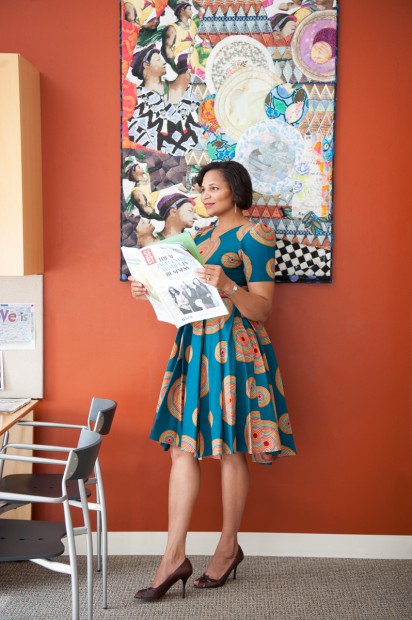 |
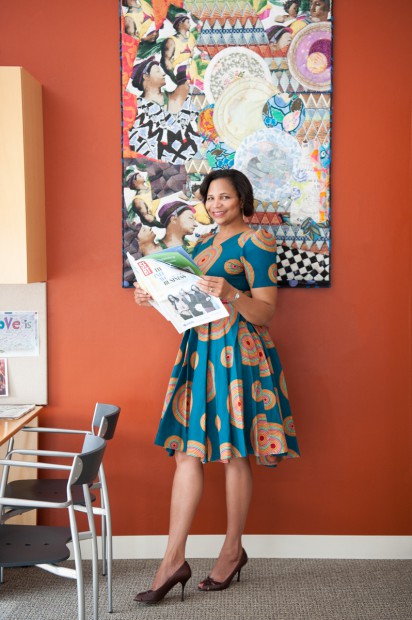 |
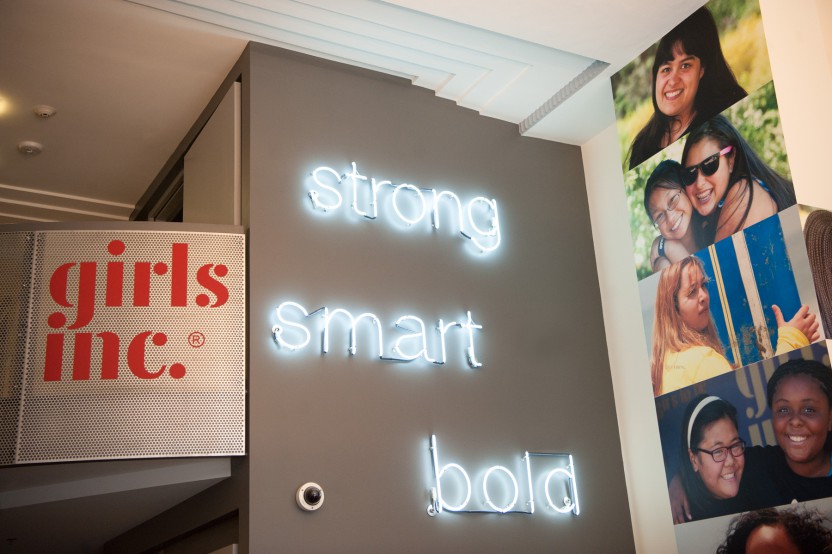 |
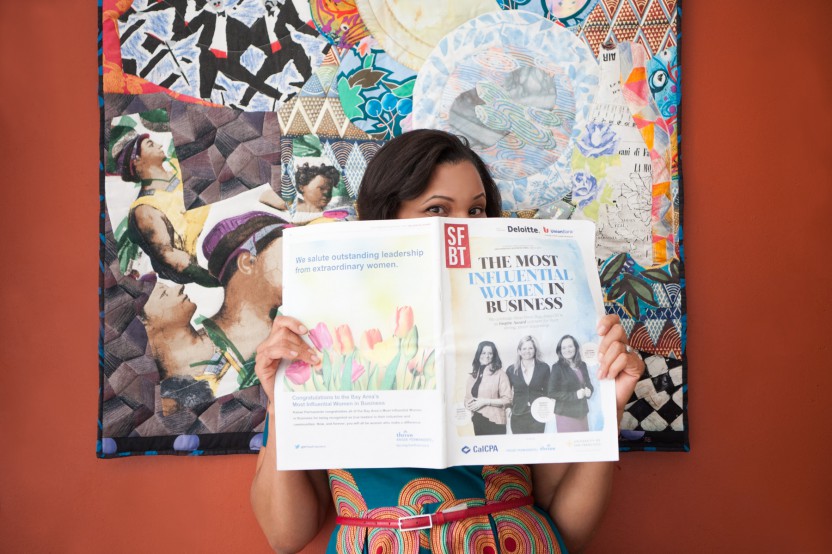 |
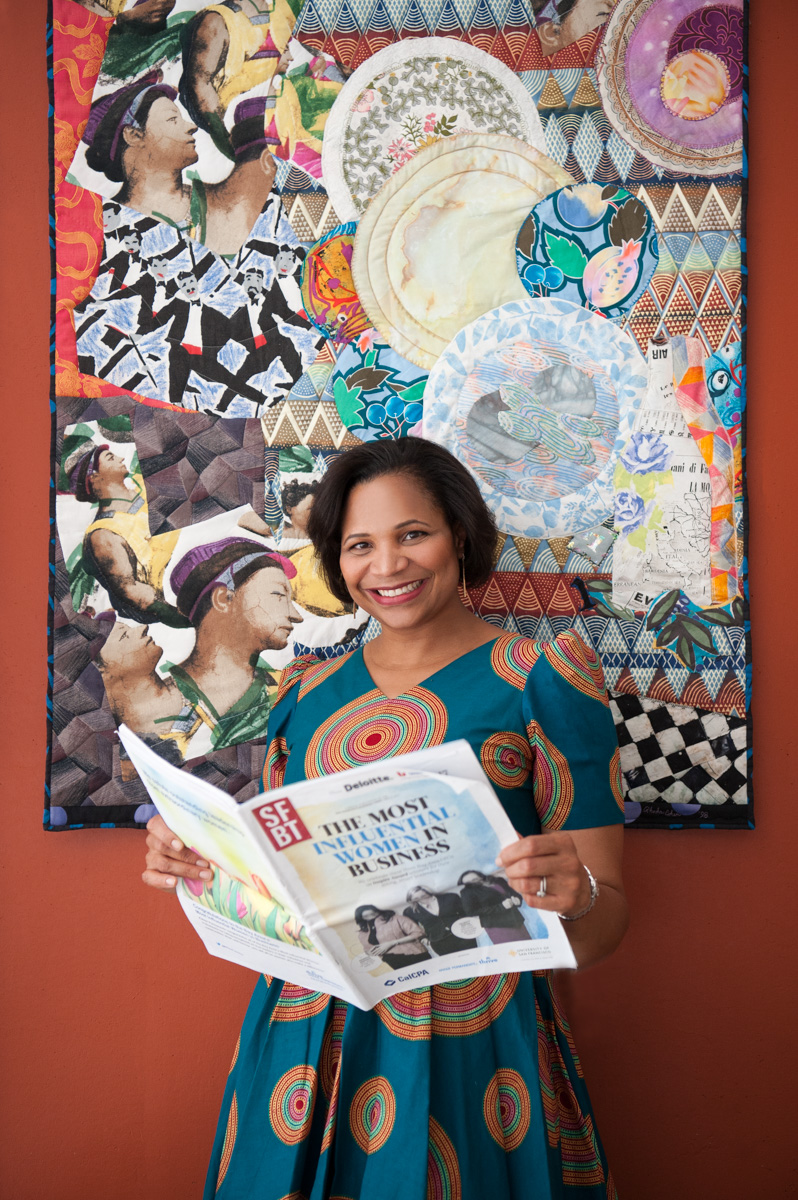 |
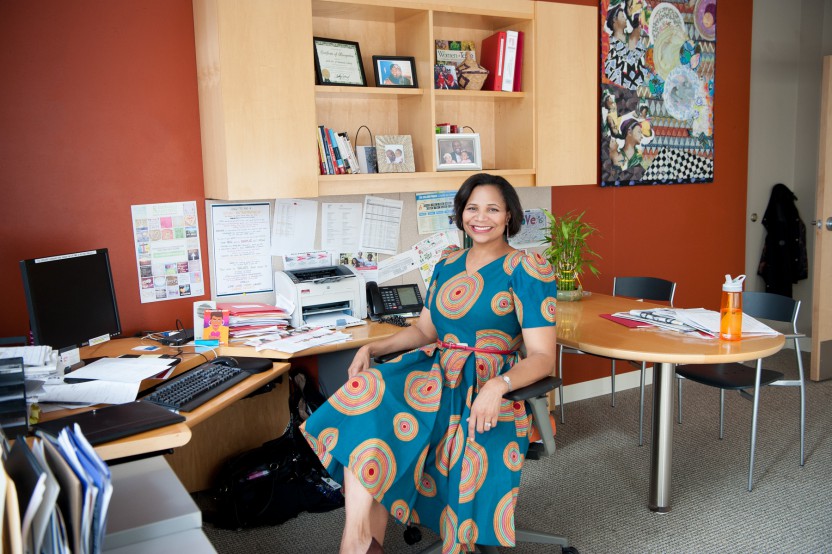 |
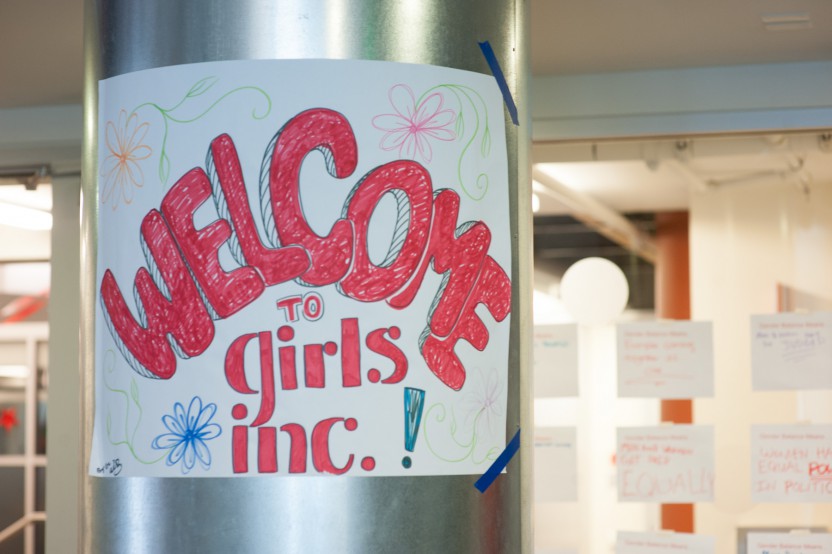 |
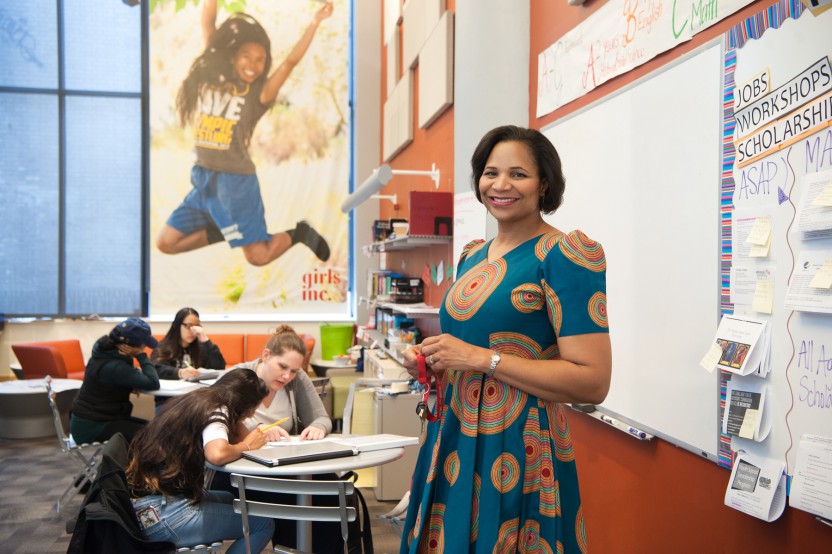 |
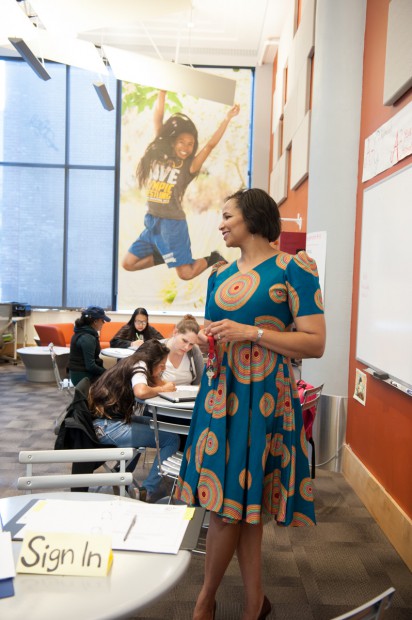 |
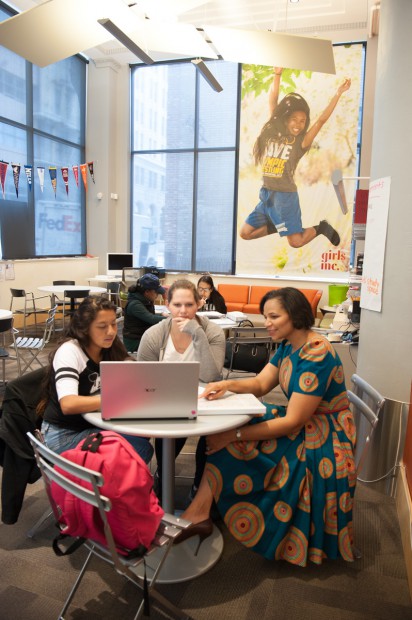 |
|
1.Who are you? What were you like as a child? I am a third generation educator and Oaklander. My grandparents were part of the Great Migration of six million African-Americans out of the South between WWI and the 1970s, as was documented by Isabel Wilkerson in The Warmth of Other Suns. After WWII, my grandfather returned from Europe and moved his family from Louisiana to California. I grew up in the city with a very strong sense of community and responsibility tied to my Southern roots. My grandmother began a lunchtime supervision program involving parents at Garfield Elementary in the 1960s and it was scaled across the district; she later worked for Oakland Tech. My mother worked in the school district at one point, and continued to share knowledge with young people formally and informally through community organizations and church. My grandfather was an informal mentor to several generations of young men. Education was a strong thread throughout my family. I grew up watching my family give of their time to others, seeing what it took to guide the next generation, and knowing that wisdom was not to be hoarded but shared. I am very much a product of that environment, and of the vibrancy and rich culture of Oakland. I am also the embodiment of what is possible when you inspire a girl child who has limited resources, encourage her to believe in herself, and give her tools and access to opportunities to fulfill her potential. I am a woman who is passionate about the power of girls, investing in youth of the next generation and leaving the world in a better place than I found it. I’m a mother of two girls committed to a more equitable world for their future. I’m the wife of a man committed to gender equity. I’m the daughter of a trailblazing woman who never took no as a final answer. As a child I was curious, adventurous, creative, a practical joker and a storyteller who loved an audience. I loved books and often had my nose stuck in one. I was very observant and had lots of questions about the culturally accepted practices I saw that didn’t make sense to me, especially ones that related to arbitrary rules for girls. I had a fierce sense of right and wrong and wasn’t afraid to say something, even if it meant pushing back with adults or confronting bullies. I played rough and tumble in the dirt and climbed trees. I also loved wearing pretty dresses, especially ones that came alive when I twirled.
|
2.How did you come to be involved with Girls Inc? I grew up in Oakland and my sister and I were the first in our family to go to college and graduate with four year degrees. I left for college on the East Coast and afterwards started my career working in the private sector in New York City. After 9/11, I asked myself what I would want to be remembered for if I died suddenly and it was not what I was doing at that time. Soon after I transitioned to the nonprofit world and was working on national health, education and public safety issues and I designed a girls’ program that I ran on Saturdays. After a few years I knew I wanted to keep growing and ultimately be in a leadership role. I decided to get my Master’s degree in public administration and I wrote my grad school entrance essay about leading a youth development nonprofit in my hometown. Then I set about intentionally ensuring I had the experiences that would enable me to do so successfully. I moved back to Oakland in 2012 just before my first daughter was born with an education nonprofit whose Chicago office I had launched years earlier. Their headquarters were in Oakland right around the corner from Girls Inc.’s downtown center. I remember walking by during lunch, seeing the Girls Inc. signage and stopping abruptly. I didn’t know how long it had been there and I didn’t have any frame of reference for it. I knew I wanted to get involved, but I also knew it wasn’t very realistic at that time to be a consistent volunteer when I worked evenings and weekends, traveled frequently and had a small baby. I remember thinking I would put a pin in the idea. My second daughter came a few years later and my urge for my work to be more rooted locally was even stronger. I had begun to mull over how I could make that possible when I saw the opportunity. I applied immediately and the rest is history. Interestingly enough, I have some very specific ties and memories to our downtown location. I have a picture from years and years ago with my sister and my grandmother, in front of the-then department store Emporium Capwell’s, just a block or so from our downtown center. Most people now know it as Uber’s new office building. I also found a yardstick in my grandmother’s sewing things and it was stamped with the name of a fabric store she frequented that once existed in the 1500 block of San Pablo. That store would have been around the corner from our center. |
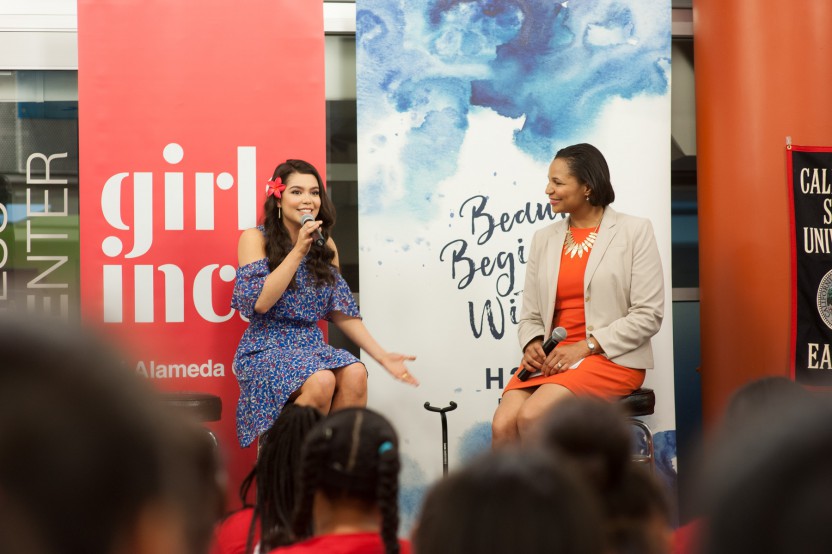 |
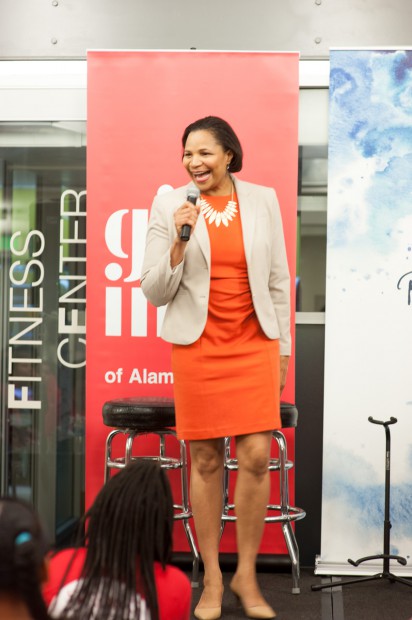 |
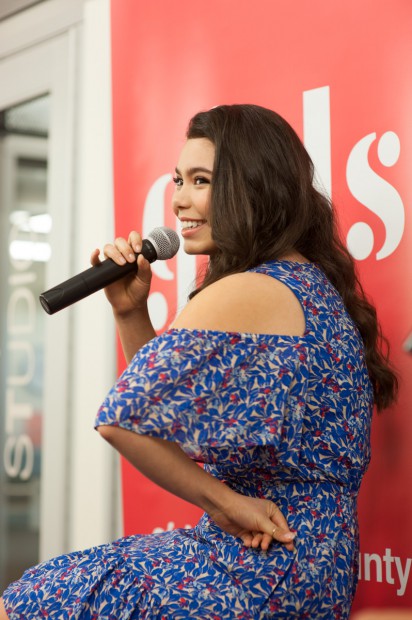 |
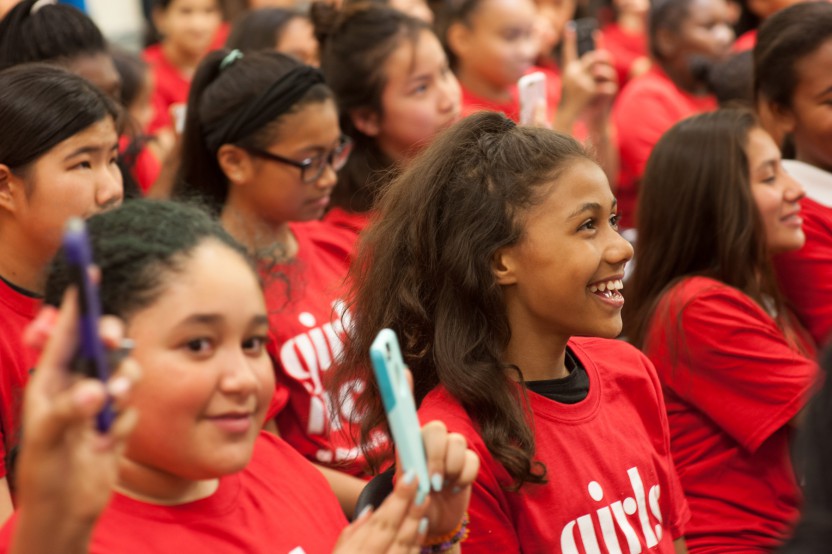 |
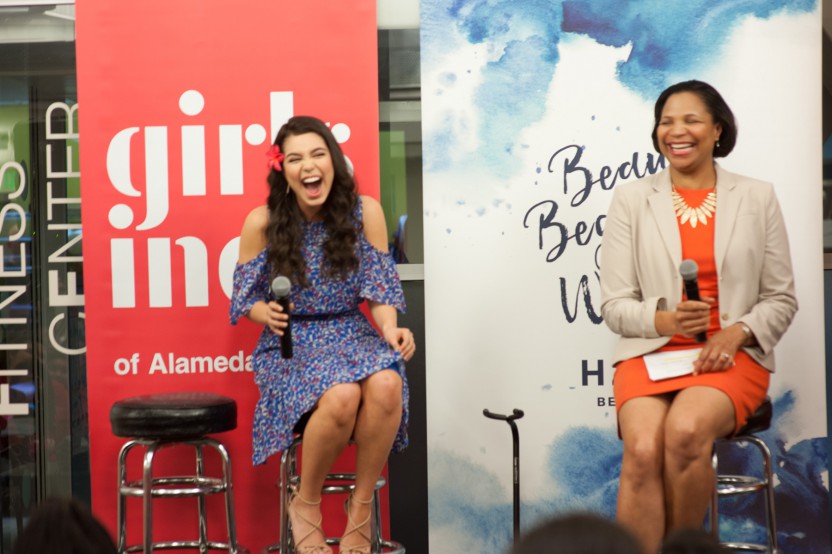 |
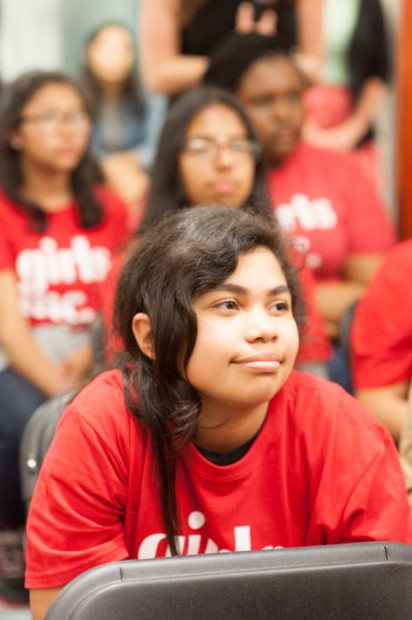 |
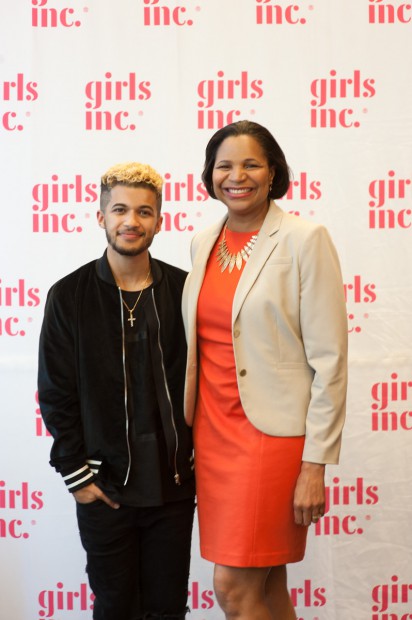 |
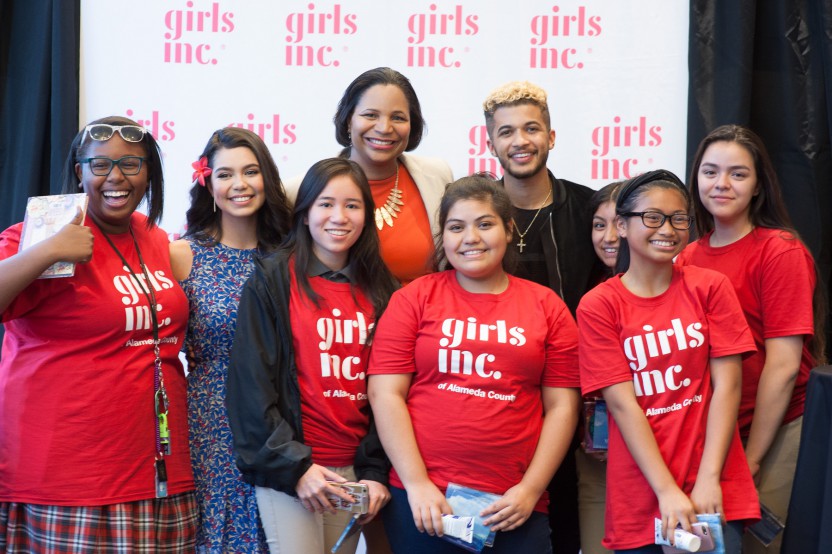 |
|
3. The organization focuses on the whole girl- tell us more about this philosophy? And do you believe the future is female? Many of our girls attend under-resourced schools, and live in areas where food deserts and unsafe parks are common. We believe that they, too, have a right to grow up healthy, educated, and independent. Our comprehensive approach to girls addresses the whole girl, focusing on her education, health, and development as a leader, working from age 5 to 18 at school sites and in downtown Oakland at our center. If you support a girl in developing as a leader but don’t make sure she is educated, it’s not enough. If you educate her, but don’t support her health, it’s not enough. If you ensure she eats well, is active and takes care of her reproductive health, but she doesn’t know how to use her voice, it’s not enough. Further, so many of our girls have experienced trauma in their young lives and our programs and services take an approach that is informed by that. Each year we reach 10,000 girls, family members, and community members. The girls we serve are primarily girls of color, with 39% identifying as Latina and 30% African American. Two out of five speak a language other than English at home, and 90% are eligible for free and reduced-price lunch. We connect them with access to the resources and opportunities they need to navigate gender, economic, and racial barriers, and realize their potential. They build relationships with trained mentors in a pro-girl environment. They discover their voices. They build sisterhood. They ignite their passions for learning. They become skilled at pushing the boundaries of their comfort zone in order to grow. They expand their sense of what is possible for them. I do believe the future is female. This isn’t to say that men and boys don’t matter. But this is to say that there is a very unique, extensive and uplifting impact that girls and women have on humanity, and that can be experienced through investing in girls and women. The research shows this in a number of ways, when you look at investing in women’s leadership of companies and how the companies perform, investing in women scientists and the issues they |
choose to research, investing in women’s education has a direct link to a country’s GDP. The research also shows that when you create equitable environments, environments where girls and women have what they need to be successful, everyone is more likely to get what they need. We are getting an early start by investing in girls. Undoubtedly, the future is female.
4.How can we as a community invest and encourage our girls, to dream, believe and execute? First we have to believe that encouraging our girls to dream, to believe and to execute is important. Unfortunately there are so many ways that we as a society demonstrate to our youth that we don’t want them to dream, and if they do, we don’t want them to believe in their dreams, and if they do, we don’t want them to actually execute on them. We have to get out of our own way, out of their way. This is one of the reasons why it was so powerful to have our girls meet Auli’i Cravalho – the voice of Moana. Not only is Moana such a vivacious, personable character, but Auli’I herself had dreams that she knew would take her from the life she knew. And she followed them. It’s a powerful message to reinforce for our girls. It was incredible to watch them be so moved. Second we have to know that not to work on behalf of girls is to actively work against them. We cannot presume a state of equity because it does not exist currently. We have to actually work to get to that state. At an individual level we can encourage and listen to the girls in our lives and tell them their voice matters. At an organizational level we can ask about the policies, practices and environments in the places where girls spend a lot of their time. Are they being encouraged, heard and respectfully challenged? We can invest in organizations, like Girls Inc. of Alameda County, that inspire girls. At a systemic level we can advocate for policies that support girls’ rights. We just launched our #GirlsHaveTheRight campaign to draw attention to challenges that girls face and the ways in which girls are staring down those obstacles. |
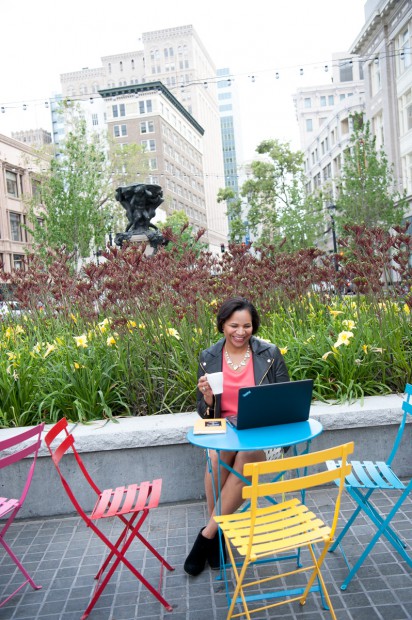 |
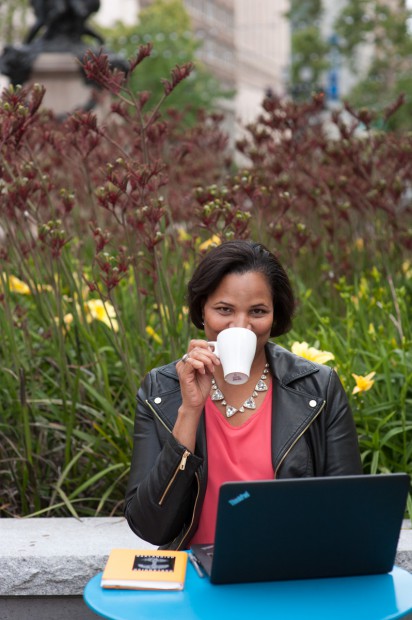 |
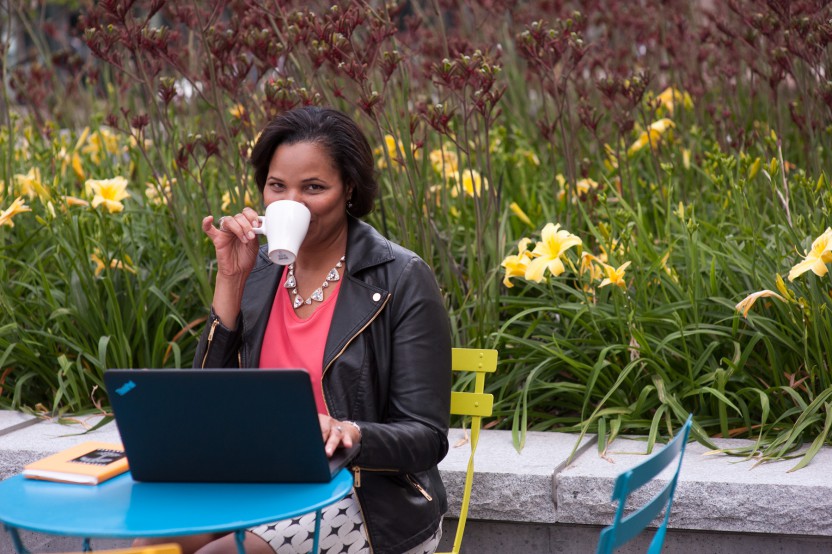 |
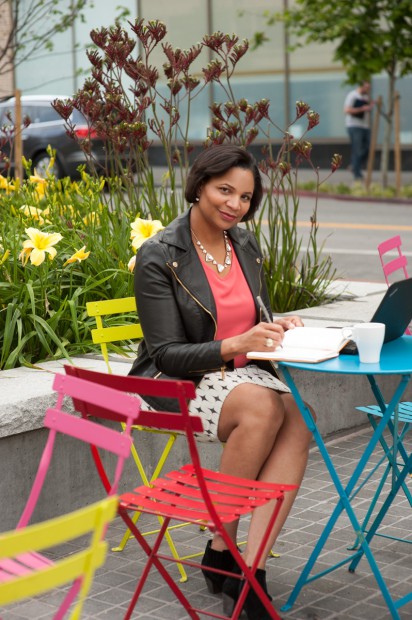 |
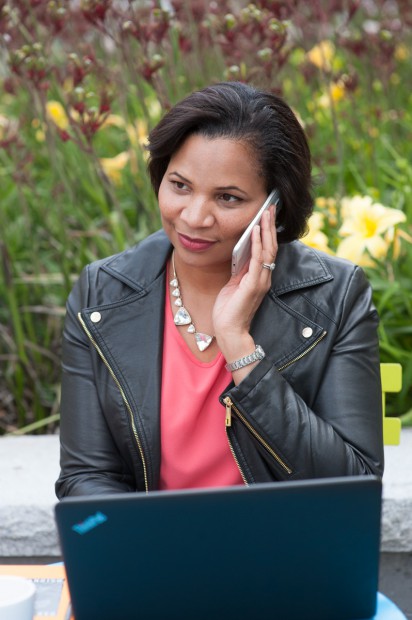 |
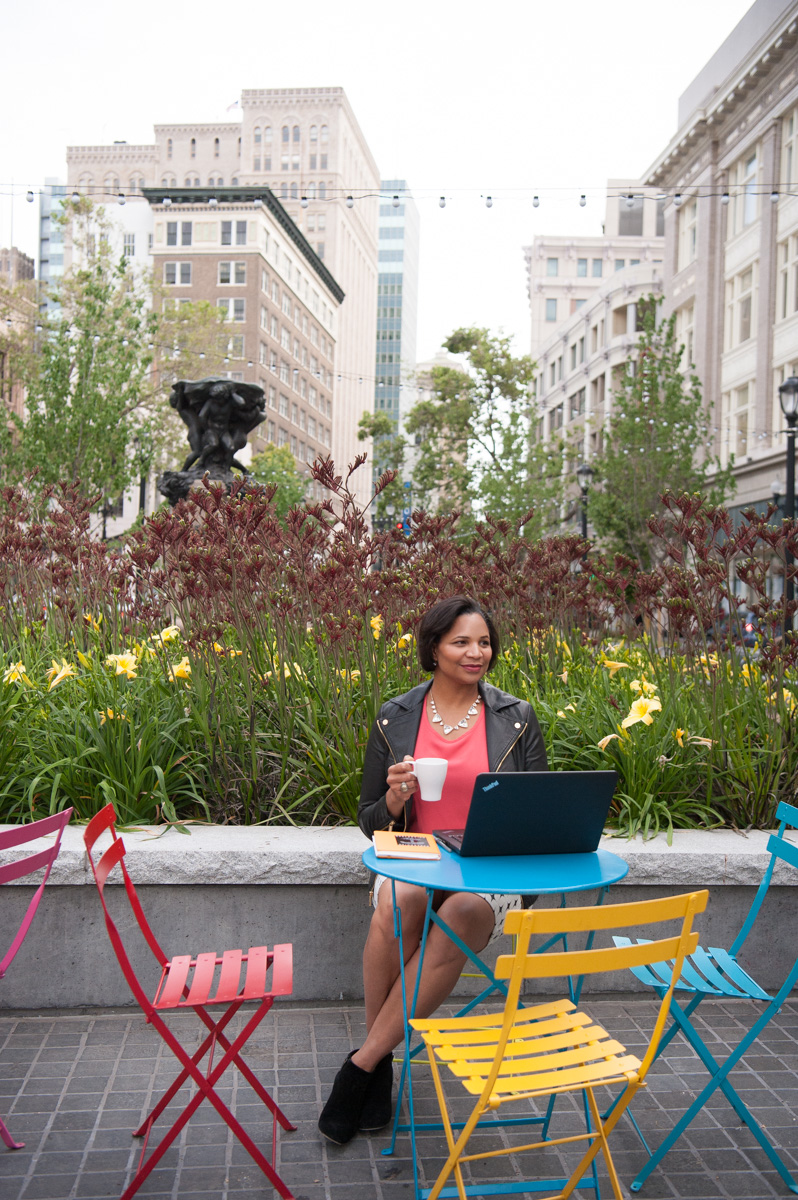 |
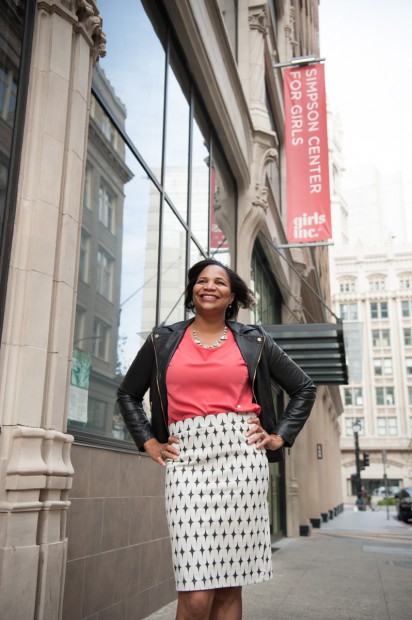 |
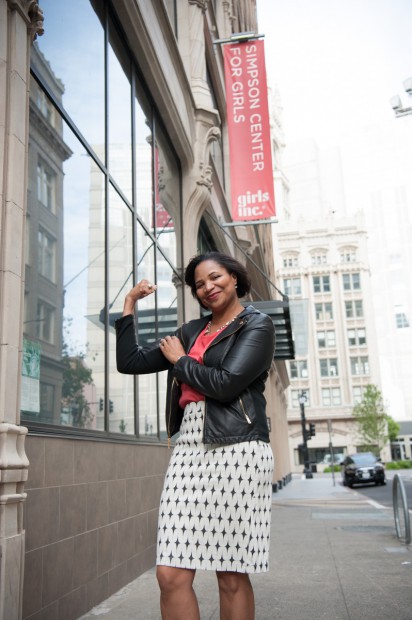 |
|
5. Who are your mentors? Role models? My mother was my first mentor and role model. I learned a lot of important lessons watching her navigate obstacles and never take no as the final answer. She always says there is more than one way to get something done. Other than my mother, I try to learn something from everyone I encounter. I have had a number of teachers, professors and managers who were mentors and role models to me. And through my love of reading, I have had so many mentors and role models in the books I have enjoyed. My friends are a collection of people whom I admire and aspire to be more like.
6. What has been the most rewarding part of your role with Girls Inc? The biggest challenge? The most rewarding part of my role with Girls Inc. is twofold: stepping into my dream job that I wrote about lifetimes ago in my grad school applications and having the opportunity to positively influence trajectories for girls, their families and the greater community and Bay Area. I love being able to go downstairs in our center and spend time with the girls. As the quote says, “They are powerful beyond measure” so to spend time in that energy is amazing. The biggest challenge has been that though we have been in the community for 59 years, and our impact is quantifiable, there are still so many who haven’t heard of us, and those that question “is this work still needed, important.” For the record, recent events tell us yes this work is still incredibly important.
7. How has our present day political climate affected this organization? Our present-day political climate has affected Girls Inc. as an organization and it has affected our girls and families. The climate has resulted in very real financial threats from proposed cuts to federal government grants for afterschool funding for low-income students, |
proposed cuts to funding for mental health services, and proposed changes to tax laws that have the potential to impact the 50% of investments from individuals that make up our budget. These cuts represent a real threat to our ability to provide continuous service to the girls and families we serve. The climate also has an impact on the larger environment in which our girls live and in which we operate. There is a lot of fear around proposed cuts to public education, healthcare and access of it, the arts, as well as the rise of policies that further marginalize groups based on race, religion, immigration status etc. The impact is to reduce the number of wraparound supports that are critical to raising well-rounded children and fostering a rich fabric of society. The climate has created an environment that heightens fears, preys on insecurities, makes the vulnerable even more so, and feels unsafe to many of our girls and families. If you look at Maslov’s hierarchy, safety and security needs have to be met before people can focus on other needs. Girls need an environment that is encouraging and welcoming, not hostile to them and to their families. Otherwise it takes a heavy toll on their mental health. In addition to the trauma they were already facing, the girls are dealing with the trauma inflicted from this administration’s policies as well. Some of the policies aren’t official but the threat of them is a very real bogeyman for our girls and their families. The research on the impact of trauma on children and their ability to learn and to develop is clear. This is why we work with our girls every day to provide a safe space with caring mentors, a place where they can develop their voice, and strengthen their resolve, a place where they can access tools and resources to move forward. These threats make you want to shrink, make yourself small, stay in bed. Our high school girls are not shrinking back. They are saying, “We got this.” Who are we not to stand with them while they face down these threats to their very well-being? |
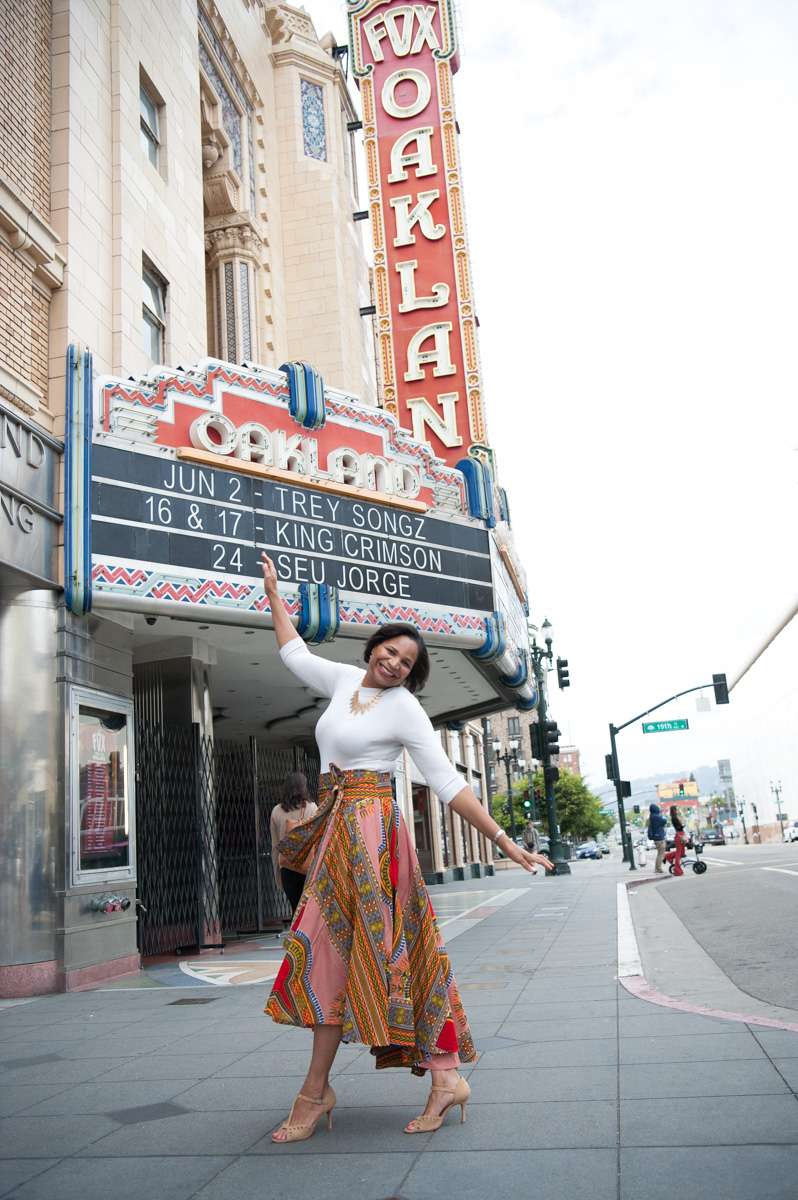 |
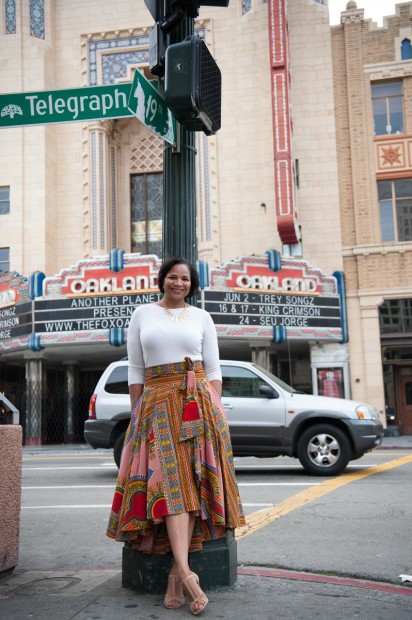 |
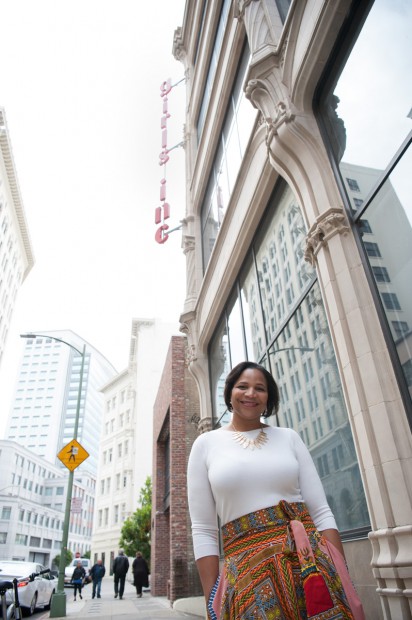 |
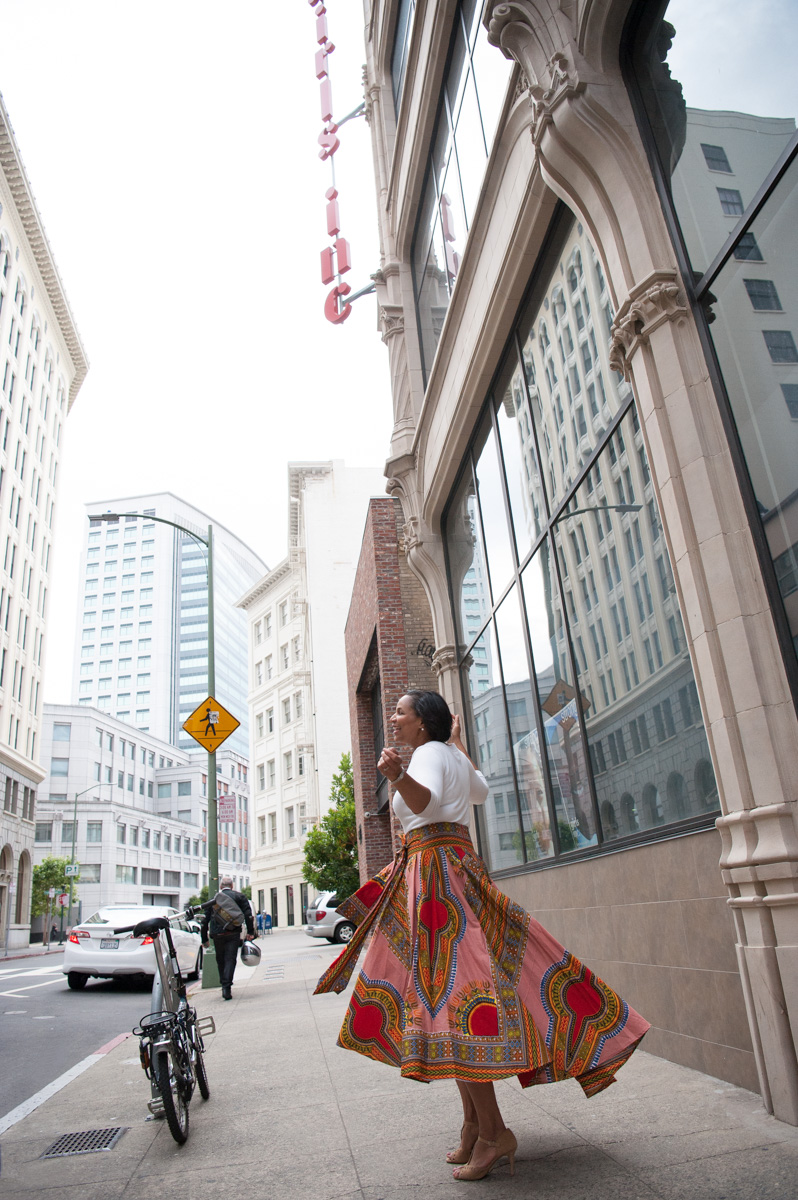 |
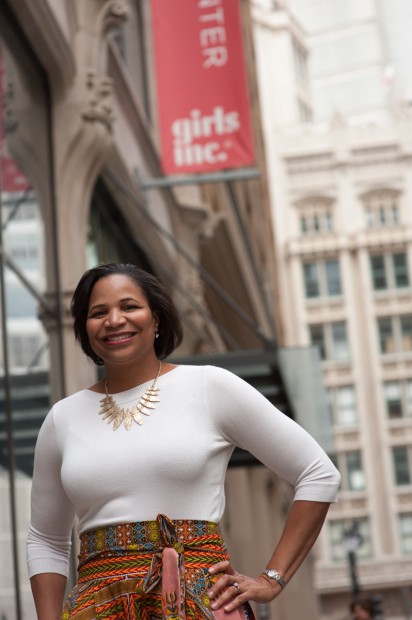 |
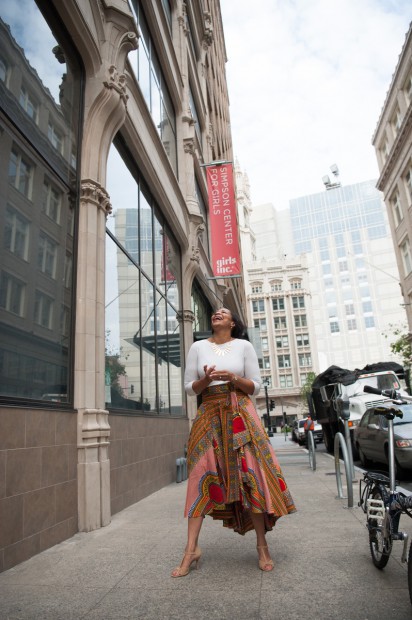 |
|
8. Tell us one or two stories about your interaction with a girl / or the girls that has caused you to change your perspective or grow individually? One of our girls had been bullied and discriminated against as a young girl because of her religion. She shared the pain of that experience and the process of developing her sense of self. She sounded assured and excited when she talked about college and taking steps toward her dreams. After she went off to college, I heard her talk about that bullying experience and some of that sense of self-assuredness was gone. The bullying didn’t sound so distant anymore. The current political environment resurfaced those old wounds and created fertile ground for bullying someone based on their gender identity, religion, race, or immigration status. Watching her struggle with that when she had previously moved past it really hit home for me. Another of our girls has been in this country since she was a very small child but she is not documented. She has talked about feeling hopeless about her future before Girls Inc. She stopped trying at school and mentally checked out because she didn’t see a path forward for herself. She turned things around after getting involved with us, graduated and enrolled in college, the first generation in her family to go. She is doing well in college and is planning to be an engineer. But what if she hadn’t found us? She was so young when she mentally checked out. She had her whole life ahead of her. If our young people cannot be hopeful, what does that say about us as a society? What do we stand for? What kind of world are we committed to creating?
9. How has your work at Girls Inc influenced and inspired you as a mom? And vice versa? I know how important it is to raise girls who are strong, smart and bold. Sometimes in the short-term as a mom it is more expedient |
to have a child who is obedient, rather than who has her own opinions and plans. The work that I do every day is a very helpful reminder of what the long-term goal is and how to keep that in mind while dealing with short-term concerns. At the same time, as I watch my daughters it is clear that they came into this world owning their power and it is my job to remind them of that when they forget or when society tells them otherwise. I want that for all of our girls. It is so important for them to be receiving these messages and to see them modeled. The more people they hear it from the better. The more places they can practice, the better.
10. What does it mean to be a woman in 2017? This is the year of all years. In the recent past, perhaps it would be possible to feel as if: “Yes I’m a woman. Move on.” But there have been so many assaults on womanhood as of late that it is impossible to sit back to stay silent. Being a woman in 2017 means standing up now for the rights of every girl and every woman and looking with clear eyes at the issues that women and girls face across the spectrum of gender identity, race, religion, class, sexuality, and immigration status. It means standing up for the right of every girl to enter feeling safe, valued, and prepared to pursue her dreams.
11. Where do you envision Girls. Inc Alameda in the next five years? It is clear that the landscape we are operating in is shifting quickly and dramatically. We are an established organization, having been in the community for 59 years, but we are also going through a period of extensive growth. In the next five years my goal is for us to be nimble and proactive so that we can continue to be a leading organization for the development of the whole girl and for girls’ rights in the Bay Area. |






So proud and honored to call you family! You are simply amazing and you inspire me to be great to and never settle. You prove that our dreams are obtainable and I love you for that!